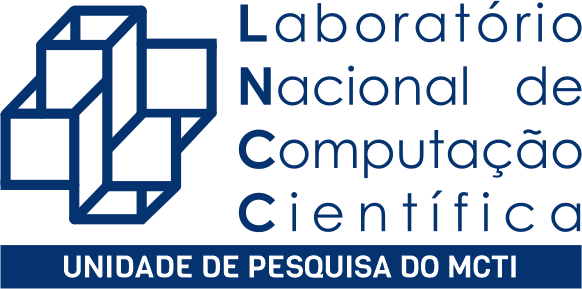EVENTO
Sensitivity Analysis as a Tool for Tumor Growth Modeling
Tipo de evento: Defesa de Dissertação de Mestrado
Mathematical and computational modeling of tumor growth have become valuable tools for learningabout and understanding various aspects of tumor onset and development. They can also help togenerate new hypotheses for experimental testing and to verify the efficiency or optimize clinicaltherapies. From the computational point of view, a huge challenge is to deal with highly nonlinear andmulti-components mathematical models that aim to display multiple types of biological interactionsacross different biological, temporal and physical scales. Computational and numerical difficulties usuallyappear. Also, nonlinear interactions may give rise to interesting and unexpected dynamics which make itdifficult to anticipate a models outcome. Here we make a step towards developing a model-buildingframework to improve the understanding of the model itself and the key issues to drive modelmodifications and simplifications.We develop a family of deterministic tumor growth models based on a mathematical model built in theliterature, which is a continuous model of seven coupled nonlinear partial differential equations that cancapture both avascular and vascular phases of the disease. Although simple, this model can provideconsiderable insight about important mechanisms related to tumor progression, as angiogenesis, forexample, which is the fundamental strategy tumors acquire to keep and improve growth. Its mainassumptions and mathematical formulation are discussed in details, and we propose some modificationsto fix ambiguities in the original model. The extension to multidimensional problems is considered, forwhich we develop reliable approximate finite element solution.We propose in this work a simple framework to build a hierarchical family of tumor growth models byselecting a subset of the most important parameters of our base model with respect to the evolution ofthe tumor volume. The importance of each parameter is identified through two model-free sensitivityanalysis techniques, the construction of scatterplots and the elementary effects, due to their simplicityand low computational costs.This model framework encompasses the essential hypotheses and the limited set of importantparameters acquired from the sensitivity analysis. In this way, we are able to create a family of modelsdescribed by at least the same essential conditions and parameters but with different complexitiesregarding the number of parameters used. Numerical experiments are conducted to provide acomprehensive understanding of the hierarchical developed family of tumor growth models.Finally, we emphasize that the modeling framework in this manner provides a powerful way for studyinga model itself or either its simplification or extension. The framework can also be tailored to form thebasis for future models, incorporating new processes and phenomena.
Data Início: 29/02/2016 Hora: 13:00 Data Fim: 29/02/2016 Hora: 15:00
Local: LNCC - Laboratório Nacional de Computação Ciêntifica - Auditorio A
Aluno: Anna Claudia Mello Resende - -
Orientador: Ernesto Augusto Bueno da Fonseca Lima - Oden Institute for Computational Engineering and Sciences - Regina Célia Cerqueira de Almeida - Laboratório Nacional de Computação Científica - LNCC
Participante Banca Examinadora: Álvaro Coutinho - COPPE/UFRJ - COPPE/UFRJ Michel Iskin da Silveira Costa - Laboratório Nacional de Computação Científica - LNCC Paulo Fernando de Arruda Mancera - Universidade Estadual Paulista - UNESP/Botucatu Regina Célia Cerqueira de Almeida - Laboratório Nacional de Computação Científica - LNCC
Suplente Banca Examinadora: Sandra Mara Cardoso Malta - Laboratório Nacional de Computação Científica - LNCC


